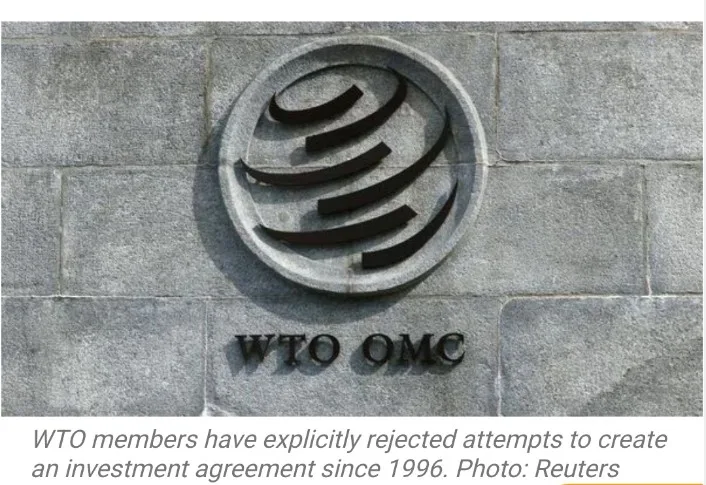In a decisive move, a significant majority of World Trade Organization (WTO) members have rejected the proposal on investment facilitation for development put forth by the China-backed group. This rejection underscores the firm stand taken by India and South Africa, asserting that any such move should only proceed through consensus, a sentiment echoed as the 13th ministerial conference (MC13) commenced in Abu Dhabi.
Despite sustained objections from India and South Africa, the convenors – South Korea and Chile, supported by China – announced the plan, challenging its legitimacy. WTO members have consistently opposed attempts to establish an investment agreement since 1996. The decision in 2004 clearly stated that investment negotiations in the WTO would not be entertained until the conclusion of the Doha Round. Furthermore, the 2015 Nairobi Ministerial Conference established that new issues could only be addressed with the agreement of all members.
Trade ministers from 164 countries are currently gathered in Abu Dhabi to deliberate on a range of topics, including agriculture, fisheries, and the interplay between trade and sustainable development.
Deborah James, facilitator of the Our World is Not for Sale network, commented on the situation, stating, “Not only is there no mandate for these negotiations; there is a negative mandate. Countries pushing this through at the MC13 are breaching fundamental WTO rules.”
She further expressed concerns about political pressures being exerted at the highest levels, potentially bypassing trade officials who could provide informed advice on the matter.
Highlighting the underlying issues, Lucia Barcena from Transnational Institute emphasized that foreign investors are deterred from many developing countries due to factors such as poverty, distance, small scale, poor infrastructure, and high costs. Barcena argued that historical investment agreements have failed to address these fundamental challenges, urging countries to commit to actively facilitating responsible investment in strategic sectors.
The rejection of the China-backed investment facilitation plan marks a pivotal moment in WTO negotiations, with the focus now shifting to the broader discussions at the MC13 in Abu Dhabi.







